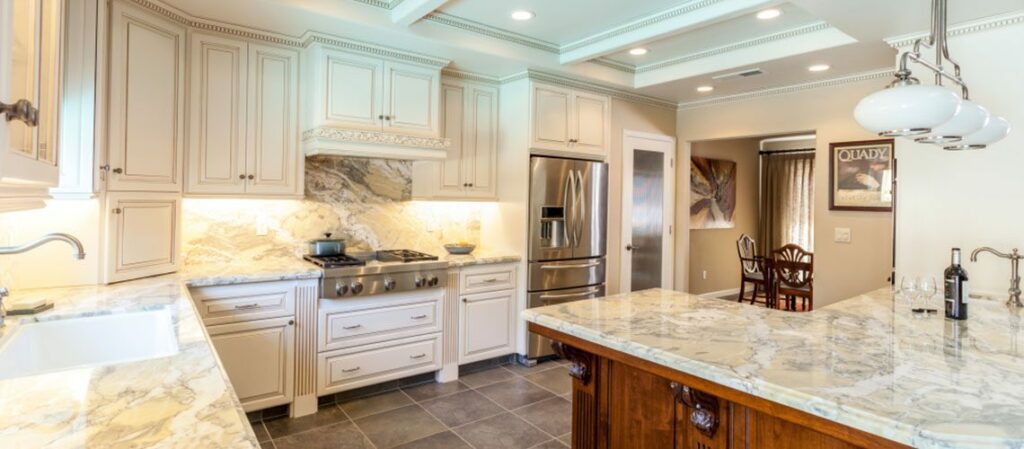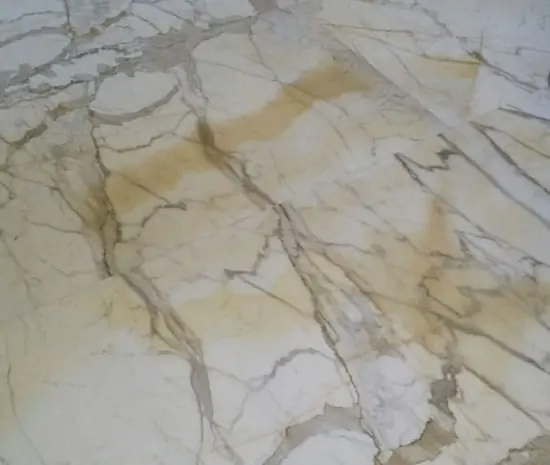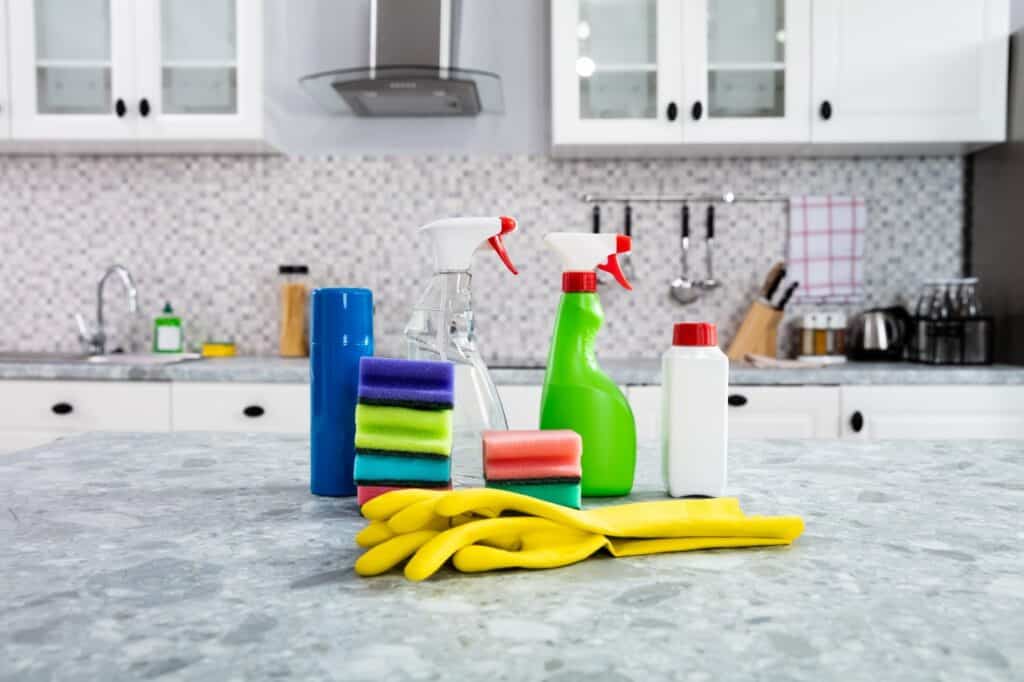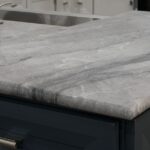Just like granite and quartz, marble has long been prized for its timeless beauty and elegant appearance for interior applications. However, while the slabs exude a classic charm that adds sophistication to any kitchen or bathroom, marble is also a delicate and porous stone – which raises questions about its susceptibility to visual damage. So, do marble countertops stain?
Yes, indeed. In this article, we’ll explore the intricacies of marble as a material, delve into the reasons why this natural stone might stain, identify common substances that can cause staining, and provide practical tips for maintaining its shine for years to come.
To read our complete guide on marble restoration, click here.
Understanding marble’s porous nature
Marble is a natural stone that forms over millions of years through metamorphism, which is the very thing that gives it such unique features. Since the last century or so, its distinct veining and patterns have made it a popular choice for countertops and various other applications.

However, it’s essential to note that marble is inherently porous. This means that its structure has small, interconnected channels and spaces that can absorb dripping liquids and fallen particles over time, making it more susceptible to staining compared to non-porous materials like quartz.
Why do marble countertops stain?
As mentioned, the surface of a marble slab is porous, featuring small holes through which any leftover liquid or residue is retained, unable to get out by natural means. If not properly taken care of, stains that vary from white to dark will be left behind on the spot, eventually turning into etches (a bigger problem for you, by the way).
That said, to avoid damaging your marble, everyday practices should be undertaken. When it comes to natural stones, the six main substances that cause staining, etching, and even fading include:
Wrong cleaners
Using harsh or abrasive cleaners can damage the protective layer of the marble surface, making it more prone to stains. These cleaners might contain chemicals that react with the marble and compromise its natural resistance to staining.
Find out the best marble cleaners here.
Acidic substances
Acids, such as those found in citrus fruits, wine, and certain cleaning products, can etch the surface of marble and cause discoloration. These substances can react with the calcium carbonate present in marble, resulting in dull spots or patches.
Hard water
Yes – unfortunately, even water can be harmful to natural stones – hard water, in particular, contains minerals that can leave behind deposits on marble surfaces, creating a cloudy or white appearance. These deposits are especially noticeable in areas with high mineral content in the water.
Vinegar
Despite its natural cleaning properties, vinegar is acidic and can harm marble surfaces. It can erode the protective layer and lead to long-lasting damage. Do not use vinegar!
Ammonia
Similarly, ammonia-based cleaners, products, and goods can compromise the integrity of the marble by weakening its protective seal. This can make the marble more susceptible to staining.
Beta-carotene foods
Finally, foods rich in beta-carotene – such as carrots, spinach, lettuce, tomatoes, and broccoli – can leave behind orange or yellow stains on marble surfaces. These stains can be particularly stubborn to remove if not addressed promptly.

Read as well: Marble Countertop Repair – Complete Guide
How to keep your marble shiny
At the end of the day, maintaining the beauty of your marble countertops requires a combination of regular cleaning and proper care. Ultimately, this translates into:
- Gentle cleaning: Use a soft, damp cloth or a microfiber cloth to clean the surface daily; avoid abrasive scrubbers or harsh cleaners that can damage the marble.
- pH-Neutral cleaners: Opt for pH-neutral, non-acidic cleaners specifically designed for marble surfaces; these cleaners effectively remove dirt and stains without compromising the marble’s integrity.
- Prompt spill cleanup: In case of spills, especially from acidic substances, blot the area immediately with a soft cloth; avoid wiping, as it may spread the spill.
- Sealing: Regularly seal your marble countertops with a high-quality, penetrating sealer; sealing helps create a protective barrier that minimizes the absorption of liquids and prevents stains from penetrating the surface. You can learn all about sealing here.
- Avoid acidic foods: Be cautious when placing acidic foods directly on the marble surface; always consider using cutting boards or protective mats to prevent direct contact.

Get professional help today!
In case you need further guidance on marble countertop repair, hiring professionals to lend you a hand is the go-to option.
Restoration specialists possess in-depth knowledge and years of experience working with various types of marble and restoration techniques – above all, they understand the nuances of different marble varieties and can tailor their approach to ensure the best results without causing further damage.
At Eagle Stones, located in Sarasota, FL, we have been providing our clients with high-end supply, installation, and maintenance services for over a decade, embracing a catalog of imported slabs from all over the world. If you live near us, don’t hesitate to contact our office and get a free quote of your own today!
We’ll be waiting for you.



